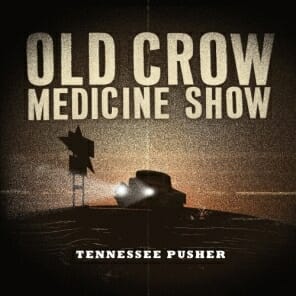Introducing Endless Mode: A New Games & Anime Site from Paste
Old Crow Medicine Show dabbles in new prescriptions
With its self-titled 2004 debut, Old Crow Medicine Show careened to the vanguard of modern bluegrass, largely due to the blast of energy the band brought to the genre. While it makes for an easily flammable straw man to imagine the rest of the bluegrass world as a taxidermy convention of hidebound traditionalists and corny neo-hippie banjo plunkers, OCMS managed to be simultaneously reverent to the genre’s musical form and edgy as all hell. They demanded notice. Somewhere between fiddleman Ketch Secor’s chiseled-rogue looks and the scrawn and yawp of fellow vocalists Willie Watson and Critter Fuqua, OCMS struck a nerve—and to its credit, even the more traditional corridors of Nashville paid tribute, inviting the band to the Grand Ole Opry and Emmylou Harris’ induction into the Country Music Hall of Fame.
Having skidded onto the scene and won over the Americana loyalists, the challenge for the band since then has been to deepen its footprint. OCMS’ debut made good on the almost-kitschy promise of its name by sounding like it could’ve been laid to wax in the mid ’30s. The album relied, in part, on classic covers and the uptempo pace of down-home bluegrass barnstomps. On Old Crow’s second album, Big Iron World, the band essentially offered more of the same (rounded out with a bracing Stones cover and yet another cocaine song), ?although on tunes like “My Good Gal,” they gestured at a songwriting mode that was more generally rootsy but without the overt Appalachian inflections. Tennessee Pusher continues this journey away from narrower bluegrass confines, and the degree of departure is striking.
Helmed by producer Don Was (Dylan, the Stones, Bonnie Raitt) and buoyed by guest spots from legendary session drummer Jim Keltner and Heartbreakers organist Benmont Tench, Tennessee Pusher de-emphasizes the old-timey vibe in favor of more conscious songwriting. The transition is most obvious on “Highway Halo,” a tune that sounds more like a mid-’60s AM-radio nugget than a tradition passed from porch to porch in a Kentucky holler. Likewise, the murder song “Hotel in Memphis” rolls along with a wink toward longhaired, bejeweled blue-eyed soul.
It’s hard not to notice that Tench’s organ keeps these songs from being purely acoustic, but instrumentation aside, Tennessee Pusher feels like a creature of studio premeditation. It reminds us that it was made in an era when music had already become a business, rather than one in which it was primarily a folk ritual. The change cuts both ways—Pusher is more of an actual album than anything the band has done before, but as the novelty of its neo-traditionalism is abandoned, Old Crow generically floats into the wider pool of modern Americana. While Pusher displays moments of growth, no song in the lot has that perfect mix of melody, words and grace that the band first captured on “Wagon Wheel.”
Still, OCMS’ desire to expand its ?capabilities feels refreshingly honest. With just one cover on the new album (Blind Alfred Reed’s “Always Lift Him Up And Never Knock Him Down”), the band is clearly trying to establish its own voice. It probably took only a few pairings with rockabilly bands to appreciate the dangers that come from being too closely associated with genre exercise. The opening lyrics to the cautionary “Methamphetamine” ring like a statement of purpose, and show a loss of patience with anyone who would treat the band as a tongue-in-cheek medicine-show museum piece: “Times they ain’t like nothin’ they used to be,” the narrator croons as he opens the door to stories of haggard meth dealers trying to avoid the coal mines, and addicted mothers neglecting children in favor of a fix. “There’s a war out there, and it’s fought by poor white men,” he howls midway through, making the song the most aggressively topical statement in the band’s canon. Strangely, though, OCMS surrounds these bleaker visions with a barn-holler drug song “Alabama High-Test,” a campy series of sexual food double-entendres on “Mary’s Kitchen,” and cheeky banjo romp “Humdinger.” After all, the tearing-hoedown, race-with-the-devil revival of the band’s live shows require lighter grist for the moonshine still.
While Tennessee Pusher finds Old Crow Medicine Show climbing halfway out the barn window, the band is still caught on the latch. The question becomes, which way should they lean? The slinky ’60s stylings of some of the album’s cuts are alluring, but in the end, they’re red herrings. The fun songs here remain the looser, reeling stabs at hardcore bluegrass curdled slightly with punk fury. There’s an innocence to the band’s romps through more traditional string-band pastures that makes its shows such deeply participatory experiences. Even when faking archaic, OCMS can’t help but be modern; the band loses its warm voice when it gets too self-conscious.
Sometimes it’s hard to tell the difference between succumbing to formula and playing to your strengths, but Tennessee Pusher suggests that—for Old Crow Medicine Show—thoughtful evolution might be less vital than intelligent design and the re-creation of the band’s traditionalist roots.
